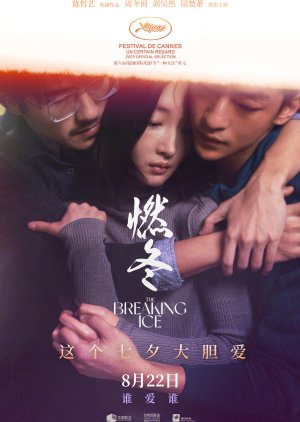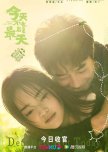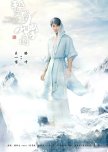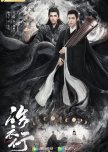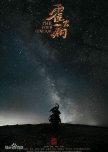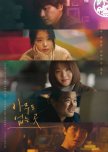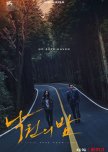
"I went far away only to find nothing was different"
The Breaking Ice was a slice of life film that was more mood than plot. Filmed during the frigid winter in Yangi, China near the North Korean border, the snowy mountainous setting was easily the fourth main character in the story of three young adults disenchanted with their lives and in need of healing and connection.Na Na leads tours in the Korean prefecture of Yanbian and doesn’t hesitate to ask for tips and good reviews with a smile on her face. Han Xiao works at his aunt’s restaurant in Yangi where Na Na brings the tour groups to eat. Hao Feng has come to town for a wedding. He spends most of his time dodging phone calls about his missed mental health appointments and staring down from the building wondering whether he has the courage to jump. He sees Na Na’s tour group and joins it the next day. When Na Na lets her mask slip around him, he finds a kindred spirit. After his phone is lost with his virtual wallet, Na Na invites him to dinner with Xiao. The three drink, dance, and later sleep it off at Na Na’s apartment. The next day they jump on Xiao’s motorcycle and travel on their own tour of the area.
“Whether I like it or not, I still have to do it.”
Zhou Dong Yu managed to lift dour Na Na above the material and give her emotional depth where the script did not. Liu Hao Ran brought a fragility to Hao Feng even though the writers were stingy with his backstory. Qu Chu Xiao’s Han Xiao wisely underplayed any jealous feelings Xiao might have had as Na Na and Hao became more intimate. The men’s friendship overcame hurdles that would usually derail them. Xiao was a good apple who even gave Hao a coat when they went hiking in the knee-deep snow, showing that the German saying, “There is no bad weather, only bad clothes,” worked in China as well. Though Xiao wasn’t a well-developed character his compassion toward a stranger was revealed in different significant layers.
“I’ve been away so long, I’m not even sure where home is.”
Xiao and Na Na had moved to Yangi and became stuck professional and emotionally. Both of their jobs had been adversely affected by the pandemic and both dealt with family separations. Hao may have had a good job in Shanghai, but he was equally disaffected. The three people were as isolated and closed off as the snow-covered mountains surrounding them. Yet they found warmth and healing connections as they spent time together.
“I don’t want to be alone.”
Director Anthony Chen and cinematographer Yu Jing Pin created beautiful shots of ice and mountainous roads and trails, lighting everything with exquisite care. The interior shots in contrast were warm, although the clubs highlighted the remoteness of the individuals as they drank and danced in the crowd. The film was gorgeous to watch and the music set the mood perfectly. The acting was all on point. My only complaint is that little was revealed about the characters, especially Hao Feng. Sometimes I had to create my own dots to connect. Despite my reservations, I quite enjoyed this film of three people reaching out and accepting each other where they were for the time they had together.
2 November 2024
7.75
Esta resenha foi útil para você?

 1
1